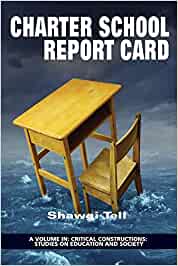 One view of change when it comes to charter schools is that charter schools are awful for various reasons, especially when it comes to funding arrangements, and that what is needed is better oversight, regulation, and accountability of privately-operated charter schools so that they stop “bilking the system” and stop harming public schools that educate the majority of students.
One view of change when it comes to charter schools is that charter schools are awful for various reasons, especially when it comes to funding arrangements, and that what is needed is better oversight, regulation, and accountability of privately-operated charter schools so that they stop “bilking the system” and stop harming public schools that educate the majority of students.
More accountability and oversight are certainly better than no accountability and oversight, but the charter school sector has operated with neither for 30 years.
The key question is: do charter schools have any valid or legitimate claim to public funds, resources, and facilities in the first place? With or without oversight, should charter schools be receiving a single public penny at all? What right do charter schools have to public wealth produced by workers?
The only way to settle these questions is to deeply appreciate the critical difference between public and private and then ascertain whether charter schools are public schools or not. It is well-known, for example, that simply declaring something is public 50 times a day does not automatically and spontaneously make it public.
The public/private question has been answered by a long list of charter school investigators: charter schools are not public schools, they are not even run by elected individuals and cannot levy taxes like public schools. Charter schools differ from public schools in many critical ways and function like privatized, marketized, corporatized entities. Unlike public schools, charter schools are not political subdivisions of the state; many operate openly as for-profit schools and many more are “managed” by for-profit corporations. Charter schools and public schools differ on organizational, legal, philosophical, and operational grounds. They are simply not the same. Thus, for example, charter schools are heavily driven by “free market” ideology. Charter school promoters see education as a commodity, not a social responsibility, and they treat parents and students as consumers and shoppers, not humans and citizens with rights that must be guaranteed in practice by government. A fend-for-yourself ethos pervades the crisis-prone charter school sector. It is no surprise that more than 3,000 charter schools have closed in just three decades. Chaos, anarchy, instability, and corruption are rampant in the highly segregated charter school sector.
If deregulated charter schools wish to exist, they can exist, but they must not have access to any public funds, resources, and facilities that legitimately belong to public schools. They have no valid claim to public wealth. At no time should a private entity be able to seize public resources that belong to the public sector. Such a setup distorts the economy and undermines education. Accountability and oversight will not fix that.
The millionaires and billionaires behind charter schools are not interested in accountability, transparency, or oversight; they are determined to engage in more neoliberal restructuring of the state so as to maximize profit as fast as possible in the context of a continually failing economy. Charter schools are pay-the-rich schemes that have nothing to do with improving schools or achievement. They are promoted under the veneer of high ideals but cannot be prettified. Charter schools are a form of state-organized corruption to pay the rich. If the tens of billions of public dollars and public facilities seized annually from public schools by charter schools were returned to public schools then students, teachers, and society would be much better off.










